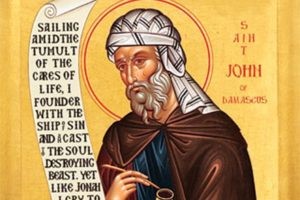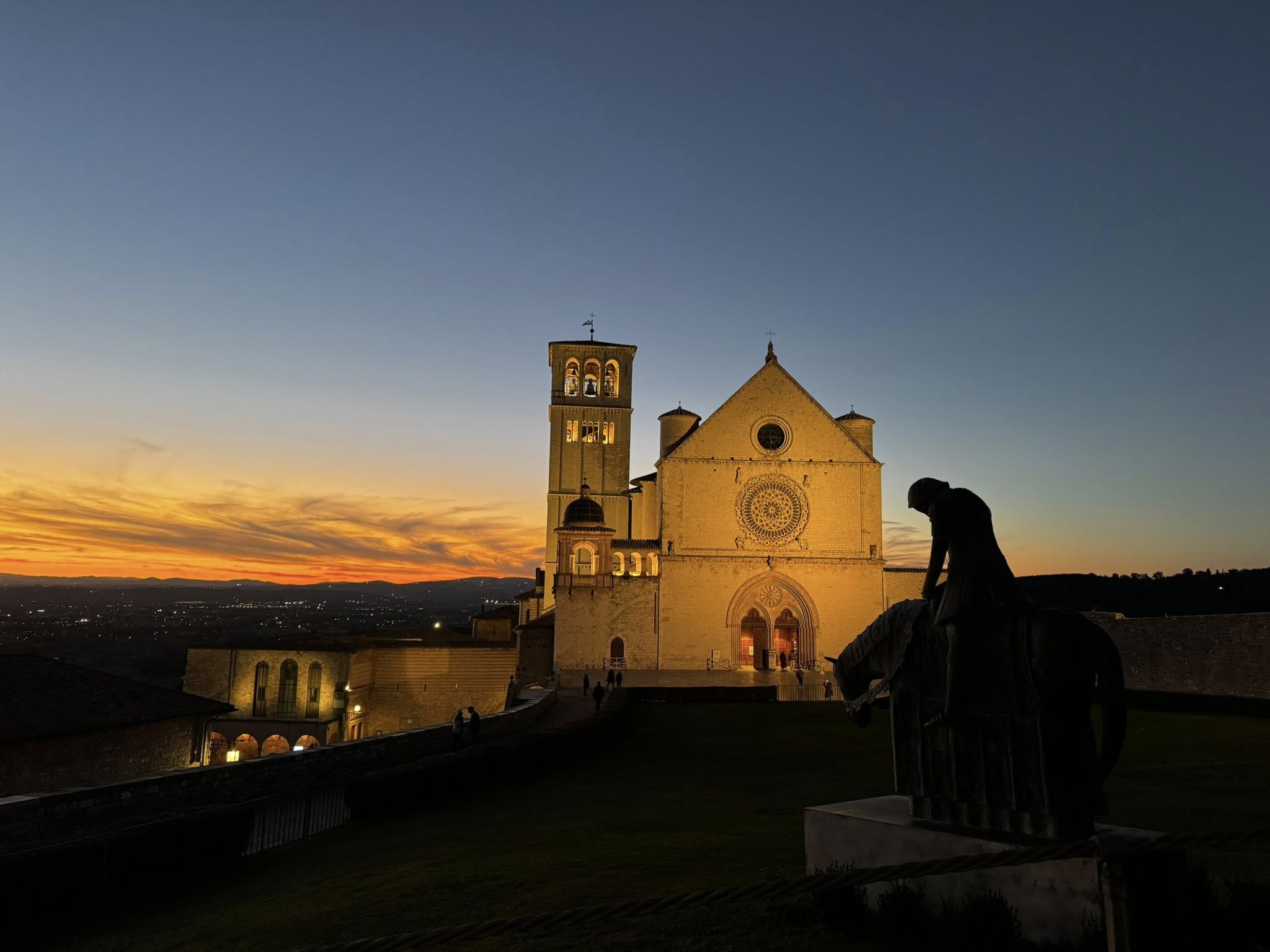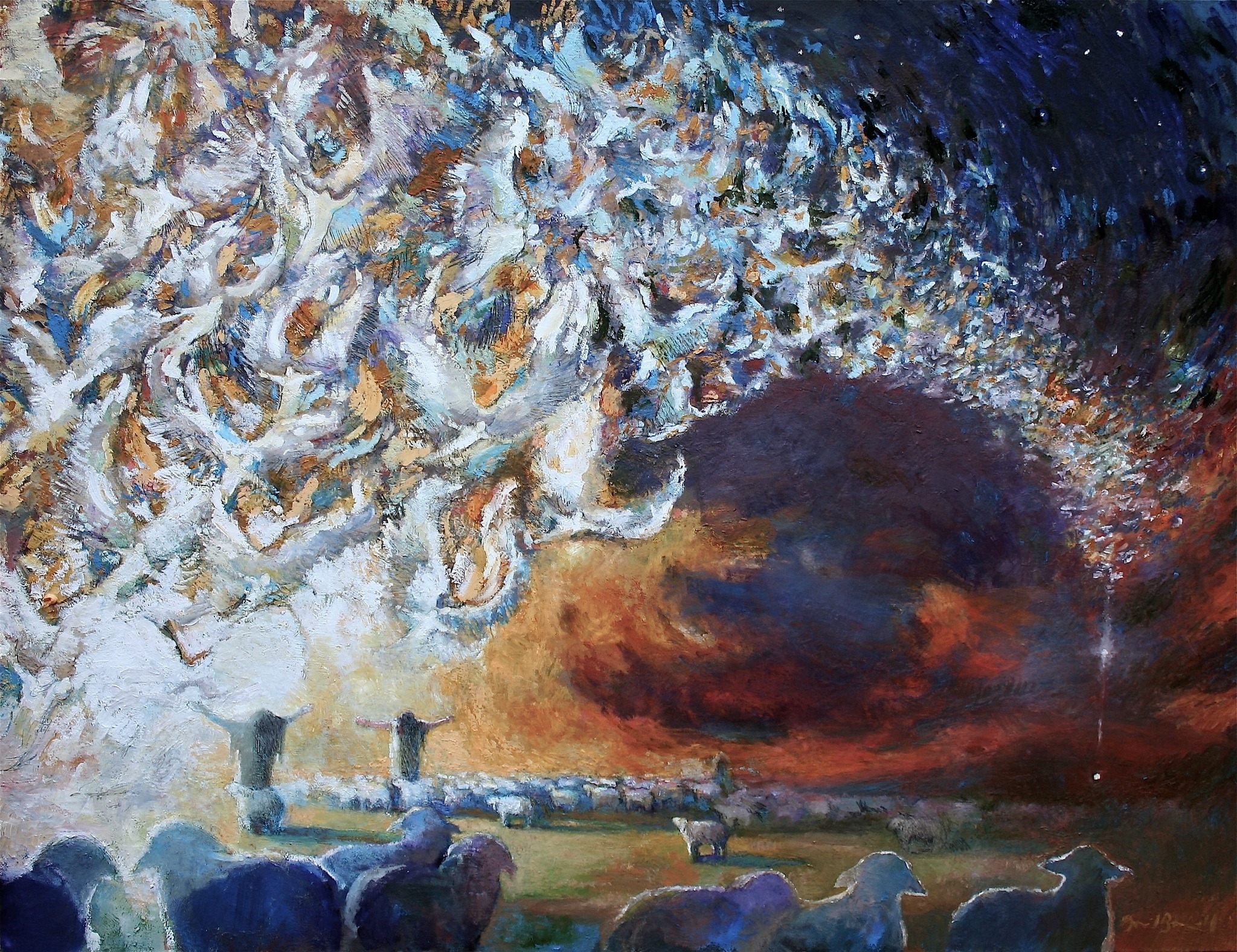– Anastasios
The monk John Damascene lived between the 7th and 8th century. His father was very careful in giving to him and to his adopted brother Cosmas a well rounded education in sacred and profane sciences. John would renounce to his hereditary rights to pursue his monastic vocation in a monastery near Jerusalem. He was a great commentator of the Holy Scripture and probably can be considered the first great dogmatician of the Catholic Church: “John of Damascus was the last of the Greek Fathers. His genius was not for original theological development, but for compilation of an encyclopedic character. In fact, the state of full development to which theological thought had been brought by the great Greek writers and councils left him little else than the work of an encyclopedist; and this work he performed in such manner as to merit the gratitude of all succeeding ages. Some consider him the precursor of the Scholastics, whilst others regard him as the first Scholastic, and his De fide orthodoxa as the first work of Scholasticism. The Arabians too, owe not a little of the fame of their philosophy to his inspiration. The most important and best known of all his works is that to which the author himself gave the name of Fountain of Wisdom (pege gnoseos). This work has always been held in the highest esteem in both the Catholic and Greek Churches. Its merit is not that of originality, for the author asserts, at the end of the second chapter of the “Dialectic”, that it is not his purpose to set forth his own views, but rather to collate and epitomize in a single work the opinions of the great ecclesiastical writers who have gone before him. A special interest attaches to it for the reason that it is the first attempt at a summa theologica that has come down to us.” (O’Connor, J.B. (1910). St. John Damascene. In The Catholic Encyclopedia, New Advent: http://www.newadvent.org/cathen/08459b.htm).
An Exact Exposition of the Orthodox Faith by St John of Damascus started like this: “No one hath seen God at any time; the Only-begotten Son, which is in the bosom of the Father, He hath declared Him. The Deity, therefore, is ineffable and incomprehensible. For no one knoweth the Father, save the Son, nor the Son, save the Father. And the Holy Spirit, too, so knows the things of God as the spirit of the man knows the things that are in him. Moreover, after the first and blessed nature no one, not of men only, but even of supramundane powers, and the Cherubim, I say, and Seraphim themselves, has ever known God, save he to whom He revealed Himself. God, however, did not leave us in absolute ignorance. For the knowledge of God’s existence has been implanted by Him in all by nature. This creation, too, and its maintenance, and its government, proclaim the majesty of the Divine nature. Moreover, by the Law and the Prophets in former times and afterwards by His Only-begotten Son, our Lord and God and Saviour Jesus Christ, He disclosed to us the knowledge of Himself as that was possible for us. All things, therefore, that have been delivered to us by Law and Prophets and Apostles and Evangelists we receive, and know, and honour, seeking for nothing beyond these. For God, being good, is the cause of all good, subject neither to envy nor to any passion. For envy is far removed from the Divine nature, which is both passionless and only good. As knowing all things, therefore, and providing for what is profitable for each, He revealed that which it was to our profit to know; but what we were unable to bear He kept secret. With these things let us be satisfied, and let us abide by them, not removing everlasting boundaries, nor overpassing the divine tradition.” We have not seen God, but it was revealed to us by a certain knowledge He put in us and by the incarnation of His Son, our Lord Jesus Christ. This is what Saint John wants us to be fully aware of.
In chapter 3 of the same work he dealt with the very existence of God: “That there is a God, then, is no matter of doubt to those who receive the Holy Scriptures, the Old Testament, I mean, and the New; nor indeed to most of the Greeks. For, as we said, the knowledge of the existence of God is implanted in us by nature. But since the wickedness of the Evil One has prevailed so mightily against man’s nature as even to drive some into denying the existence of God, that most foolish and woe-fulest pit of destruction (whose folly David, revealer of the Divine meaning, exposed when he said, The fool said in his heart, There is no God), so the disciples of the Lord and His Apostles, made wise by the Holy Spirit and working wonders in His power and grace, took them captive in the net of miracles and drew them up out of the depths of ignorance to the light of the knowledge of God. In like manner also their successors in grace and worth, both pastors and teachers, having received the enlightening grace of the Spirit, were wont, alike by the power of miracles and the word of grace, to enlighten those walking in darkness and to bring back the wanderers into the way. But as for us who are not recipients either of the gift of miracles or the gift of teaching (for indeed we have rendered ourselves unworthy of these by our passion for pleasure), come, let us in connection with this theme discuss a few of those things which have been delivered to us on this subject by the expounders of grace, calling on the Father, the Son, and the Holy Spirit.”


 Follow
Follow

